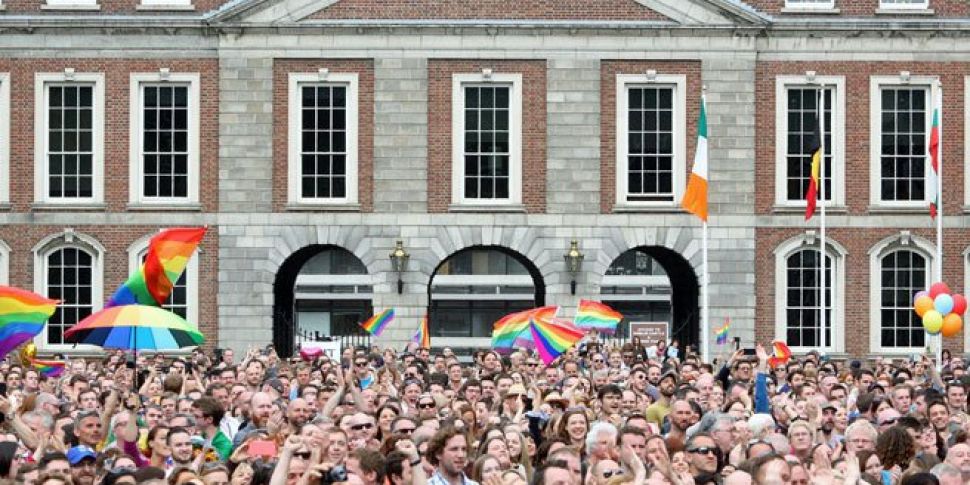The Supreme Court has rejected the final leave to appeal over the result of the Marriage Equality referendum.
Gerry Walshe, an electrician from Lisdeen Road, Co Clare and Maurice Lyons, a gardener with an address at Callan, Co Kilkenny argued that the referendum had not been conducted in the correct manner.
Mr Walshe had claimed there was State bias in funds towards the Yes side, and that the the secrecy of the ballot was compromised by CCTV at polling stations.
Both were dismissed by High Court President Nicholas Kearns - and the Supreme Court will now not hear the cases.
In the decision of Mr Walse's case, the Supreme Court says: "the [applicant's] application for leave should be refused as lacking any factual or evidential basis".
"The [applicant's] claims rely on unsubstantiated assertions which are offered without any, or any adequate, evidence".
It comes as the Government publishes the Marriage Bill 2015, paving the way for same-sex marriage.
The Justice Minister Frances Fitzgerald will introduce the Bill into the Dáil next week so that same-sex marriages can take place before the end of the year.
It also includes provisions for same-sex marriages from other countries to be recognised.
The Bill will also allow a couple to change a notification of their intention to enter civil partnership into a notification of their intention to marry.
Plans are also being made to reduce the fee for civil partners wishing to marry from €200 to €50.
Civil partners will be able to marry without having to formally dissolve their civil partnership first.
Ms Fitzgerald said: "I am delighted to be in a position to publish the Marriage Bill 2015 which will, when enacted, enable same-sex couples to marry in Ireland".
"This Bill implements the strong desire of the Irish people that couples should be able to marry without distinction as to their sex. It will make Marriage Equality a reality in Ireland".
The key provisions of the Bill are:
- The statutory impediment in section 2(2)(e) of the Civil Registration Act 2004, preventing parties of the same sex from marrying will be removed. This will enable two persons to marry without distinction as to their sex
- Each of a couple will be able to accept the other in their marriage vows as a husband, as a wife or as a spouse
- Those couples who are already in civil partnerships will be able to marry one another without having to dissolve their civil partnership. The civil partnership will be dissolved as of the date of the marriage
- Couples who have given notice of their intention to enter a civil partnership will be able to opt to convert that notification into notice of their intention to marry
- Civil partnership will, in general, be closed to new couples. Only couples who have already completed their civil partnership registration forms or whose civil partnership has been delayed by an objection will be able to register in a civil partnership once the relevant sections of Part 7A of the Civil Registration Act 2004, as inserted by the Civil Partnership and Certain Rights and Obligations of Cohabitants Act 2010, have been repealed
- The Bill specifies that nothing in it can be construed as compelling a religious body to recognise a particular form of marriage ceremony or a religious solemniser to solemnise a marriage with a form of marriage ceremony that is not recognised by the religious body of which he or she is a member
- Foreign marriages between same sex couples will be recognised under Irish law as marriages.
- Legislative amendments are set out in the Bill providing for situations in which spouses are of the same sex
The Bill will be published tomorrow on the Houses of the Oireachtas website.
Dr Fergus Ryan is law lecturer at Maynooth University.
He told Newstalk Breakfast earlier that passing the legislation should not take too long.









